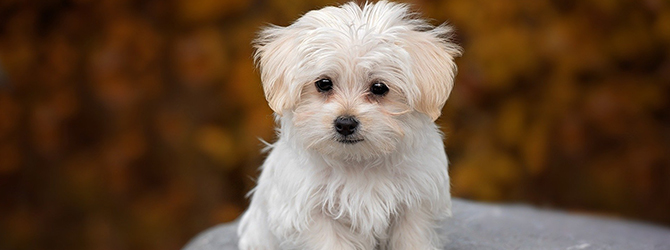Can puppies eat eggs, nuts and dairy?
First Published: 20/07/2020
Last Updated: 30/10/2023
You've just got a new puppy and want to give them a tasty treat once in a while.
Let’s take a look at some of the most-searched ‘Can my puppy eat…’ queries on the web.
This time, the focus is eggs, nuts and dairy!
Before we start… A minimum of 90% of your puppy’s diet should consist of specially designed puppy food. You should only feed your dog human snacks once in a while, and snacks should take up no more than 10% of their daily diet. That goes for the safe and harmless human snacks, of course. Many human snacks, like chocolate (milk, white and dark) are poisonous to dogs, grapes and xylitol (found in sugar-free treats) . Before treating your dog to human food, make sure you do your research first to see if it’s safe.
Read more: Dog poison: protecting your pet from common poisons.
Can puppies eat raw eggs?
No. Absolutely not.
Raw egg is a common source of Salmonella. Eating raw egg would put a puppy or dog at risk in much the same way as humans.

Can puppies eat scrambled eggs?
Yes! Puppies can eat cooked eggs, so long as they’re cooked thoroughly.
Cooked eggs are a great snack for puppies. They’re a good and efficient source of protein, linoleic acid and Vitamin A - often helping to keep dogs’ skin and coat in tip-top condition.
An average egg contains 78 calories each, and up to 6 grams of protein. Eggs also are a good source of other nutrients, including vitamin D (which aids bone health and the immune system) and choline (which helps metabolism and liver function, as well as foetal brain development). Egg yolks are also proven to reduce the risk of cataracts (blurry vision) in dogs.
When feeding cooked egg to your puppy, take care to avoid cooking your eggs with fatty oils. Boiled eggs are a way better option. Avoid weight gain by letting your puppy enjoy only a small amount of cooked egg on rare occasions.
Can puppies eat nuts?
Some nuts are toxic to dogs and can induce vomiting, depression and hyperthermia… others aren’t toxic, but it’s best to keep nuts away from your puppy at all times, just to be safe.
Nuts are high in fat - even the unsalted type. They’re also a choking hazard for our furry friends.
Nuts are a great snack for humans, what with their high protein and fibre content, but they’re best reserved for humans and humans alone.
Read more: Can puppies eat... fruit and vegetables?

Can puppies have peanut butter?
Puppies can eat some types of peanut butter, but not all.
Some peanut butter contains xylitol - a type of sweetener that’s found in lots of sugar-free products. Xylitol is highly toxic to puppies, so make sure you check the label thoroughly. If your peanut butter contains xylitol, it should be avoided at all times.
Peanut butter that doesn’t contain xylitol is a tasty treat for puppies indeed, but it’s high in calories and high in fat, so make sure it’s given as a rare treat only.

Read more: Xylitol poisoning in dogs: Keeping your pet safe from a highly toxic ingredient.
Can puppies eat cheese?
Some, but not others. Dogs can eat the following cheeses:
- Hard (i.e. cheddar)
- Squeezy
- Cottage
Plain cheeses like cheddar and cottage cheese are great to use while training. Feed them in small amounts to avoid weight gain, but you should find that, especially while teaching your dog more complex tricks like roll over, cheese can be a great motivator because your puppy LOVES the taste of it.
Avoid blue cheeses because they contain a substance known as roquefortine, which can cause vomiting and stomach upsets. Secondly, you’ll want to avoid feeding cheese altogether if your new dog is obese or overweight, lactose intolerant, or suffering from stomach problems or canine kidney problems (leading to renal disease).

If you need more advice, get in touch with your local vet - they’ll be happy to advise further.
Can puppies have cows’ milk?
In small doses yes, but cows’ milk is not essential to a balanced diet.
If you do decide to feed your puppy milk, make sure you feed them only a small amount - a few tea-spoonfuls will be more than enough. High-fat snacks like milk and dairy should be fed as rare treats and should not substitute your puppy’s healthy, vet-approved diet.
If your puppy is lactose intolerant, you’ll want to avoid letting your dogs drink milk altogether.
If your dog responds well to dairy-based snacks, especially while training, cheddar cheese might be a better option because it’s easier to feed in small doses. Once again, just make sure your puppy doesn’t over-indulge on high-fat dairy products.
Read more: Can puppies eat... meat?

Can puppies eat ice cream?
No. If milk is a little close to the line, ice cream is one step over it. Ice cream brings all the problems associated with milk, plus added sugar - which can lead to weight gain - and the threat of chocolate or xylitol, which are highly poisonous.
Your puppy wouldn’t necessarily always be in danger from having a small amount of ice cream but because of the associated risks, this snack is best left for humans and humans alone.

If you want to treat your dog on a hot summer’s day, try giving them an ice cube. Not only is this treat simple, affordable and risk-free, your puppy will love it too!
Find your nearest vet using our Find a Vet page, or speak to a vet online using Online Vets.





